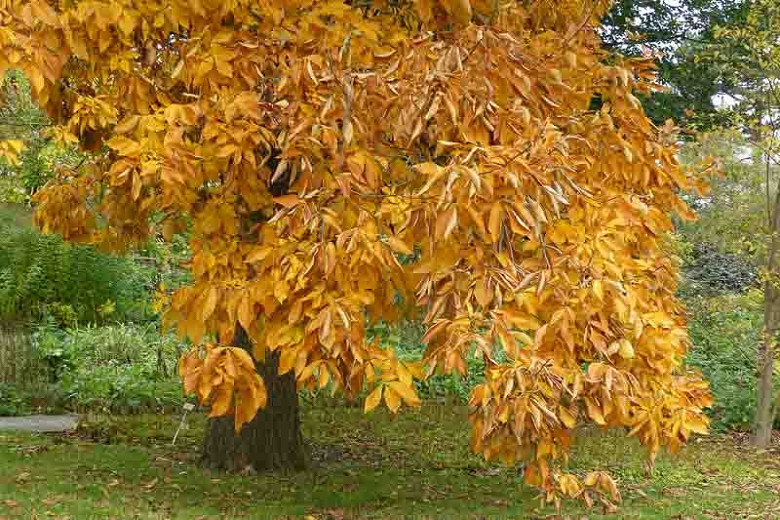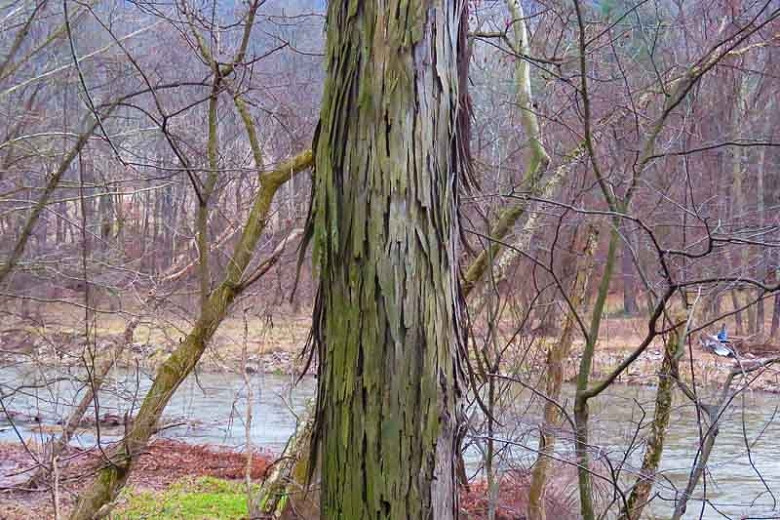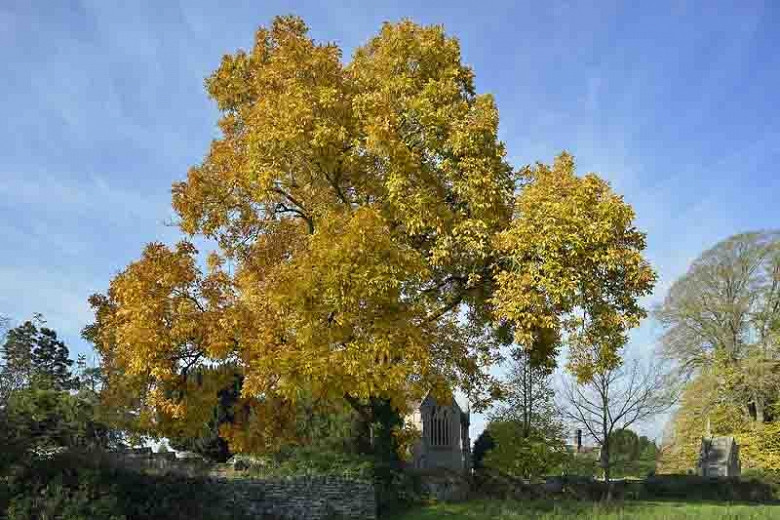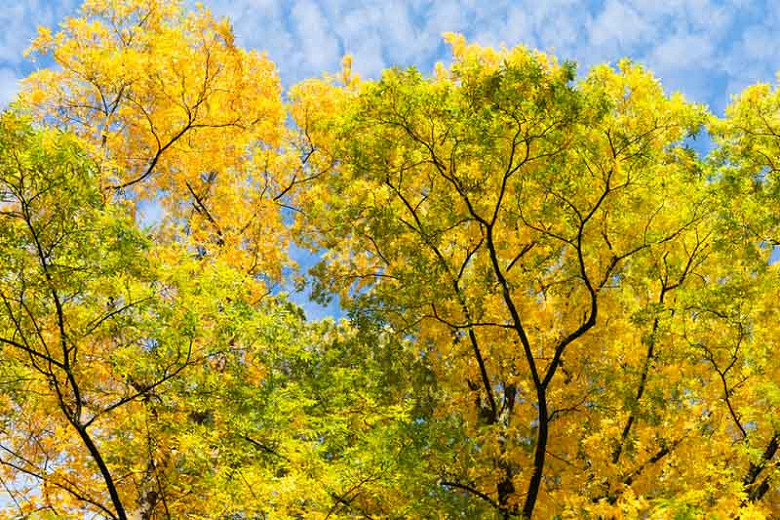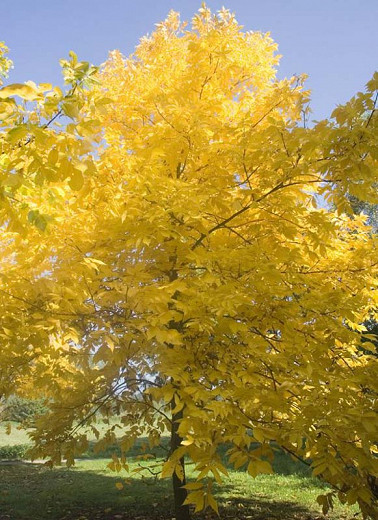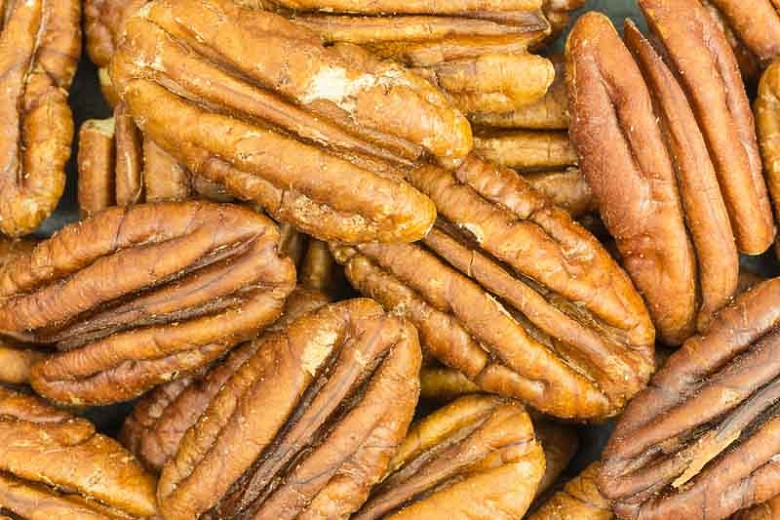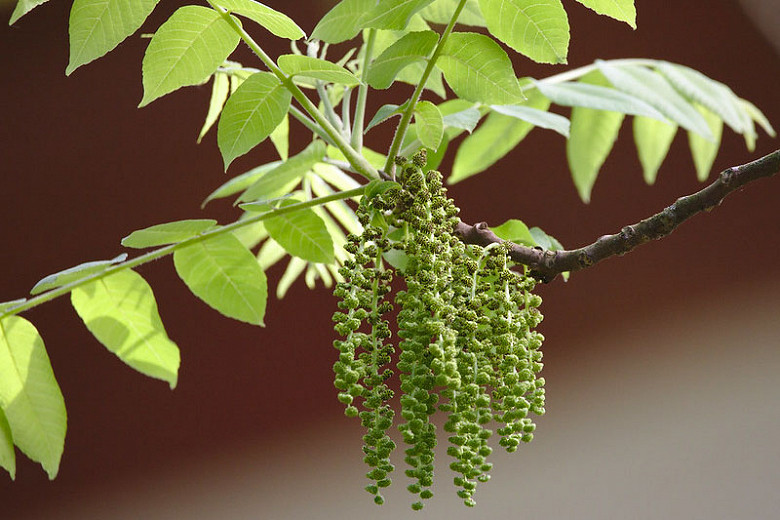Carya ovata (Shagbark Hickory)
Carya ovata (Shagbark Hickory) is a tall deciduous tree of broadly conical habit with an irregular, oval-rounded crown and a stunning straight gray trunk that peels in large, shaggy strips. The ascending and descending branches are clothed in dark olive-green leaves, each leaf having 5 pointed leaflets, 3 to 7 in. long (7-17cm). They turn rich yellow and golden brown in the fall. Inconspicuous greenish-yellow flowers appear in spring, the male flowers in pendulous catkins, and the female flowers in short spikes. The female flowers are followed by sweet, edible nuts. Shagbark Hickory nuts are readily eaten by a wide variety of birds and mammals, including mallard, wood duck, northern bobwhite, wild turkey, ring-necked pheasant, common crow, bluejay, white-breasted nuthatch, red-bellied woodpecker, and yellow-bellied sapsucker. A tall ornamental shade tree for large properties.
- Grows up to 70-80 ft. tall (21-24 m) and 50-70 ft. wide (15-21 m).
- A full sun to part shade lover, this plant is easily grown in humusy, rich, moist, well-drained soils. Tolerates occasional periods of dry soil. Drought tolerant once established.
- No routine pruning is necessary. Remove diseased, damaged, congested, or crossing shoots.
- No serious pest or disease issues. Keep an eye out for crown gall, powdery mildews, and leaf spots. Shagbark Hickory is seldom browsed by deer unless preferred foods are limited or unavailable.
- Propagate by seed sown in situ as soon as ripe; seedlings rapidly develop a deep tap root and resent transplanting.
- Native from Quebec to Minnesota south to Georgia and Texas.
Requirements
| Hardiness | 4 – 8 |
|---|---|
| Heat Zones | 1 – 8 |
| Plant Type | Trees |
| Plant Family | Carya – Hickories |
| Exposure | Full Sun, Partial Sun |
| Season of Interest | Spring (Mid,Late)Summer (Early,Mid,Late)Fall |
| Height | 70' – 80' (21m – 24m) |
| Spread | 50' – 70' (15m – 21m) |
| Water Needs | Low, Average |
| Maintenance | Low |
| Soil Type | Chalk, Loam, Sand |
| Soil pH | Acid, Alkaline, Neutral |
| Soil Drainage | Moist but Well-Drained, Well-Drained |
| Characteristics | Showy, Fruit & Berries |
| Native Plants | United States, Midwest, Illinois, Indiana, Iowa, Kansas, Michigan, Minnesota, Missouri, Nebraska, North Dakota, Ohio, Wisconsin, Northeast, Connecticut, Delaware, Maine, Massachusetts, Maryland, New Hampshire, New Jersey, New York, Pennsylvania, Rhode Island, Vermont, Southeast, Alabama, Arkansas, Georgia, Kentucky, Louisiana, Mississippi, North Carolina, South Carolina, Tennessee, Virginia, West Virginia, Southwest, Oklahoma, Texas |
| Tolerance | Clay Soil, Deer, Dry Soil |
| Attracts | Birds, Butterflies |
| Garden Styles | Prairie and Meadow |
